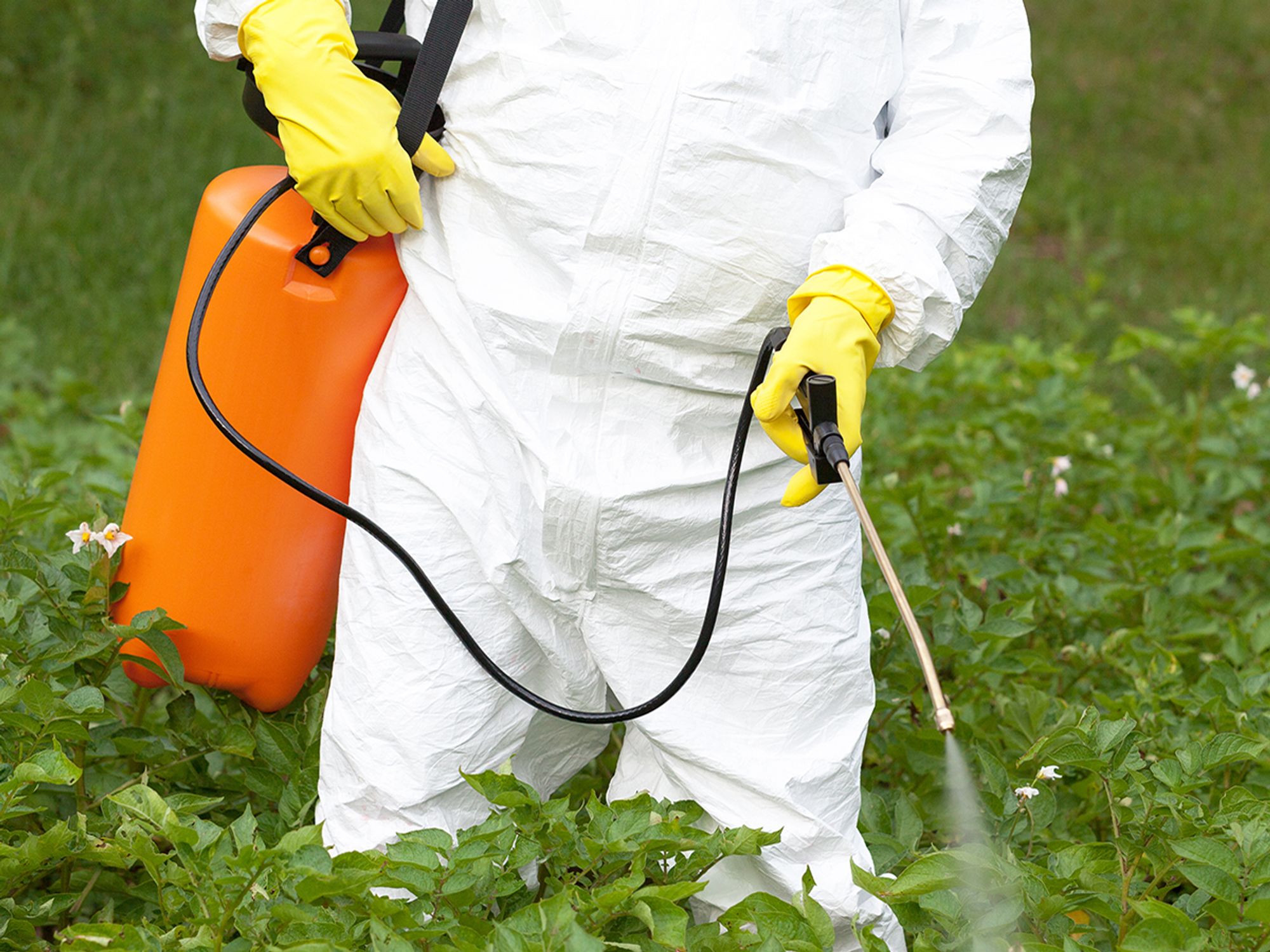Pesticides

- EPA is charged with ensuring that pesticides do not pose unreasonable risks to the public and to the environment.
Pests
Plants, insects, mold, mildew, rodents, bacteria, and other organisms are a natural part of the environment. They can benefit people in many ways, but they can also be pests. Residential and commercial locations are often hosts to common pests, such as cockroaches, fleas, termites, ants, mice, rats, mold, or mildew. Weeds, hornworms, aphids, and grubs can be a nuisance outdoors when they get into a lawn, garden, crop, or fruit and shade trees. Pests can also be a health hazard to people and animals.
Pest control
The good news is nowadays, there are many different pest control methods. Sometimes a non-chemical method of control is as effective and convenient as a chemical alternative. Fixing leaks, storing food in containers, controlling pest access, cleaning up garbage, and mowing the lawn high and often are good ways to prevent pests. Trapping rats and mice, swatting insects with a flyswatter, mulching gardens, and hoeing or hand-picking weeds are other manual ways of controlling pests.
However, sometimes the best solution to a pest problem is a chemical treatment — using a pesticide. Technically, the term “pesticides” includes pesticides, herbicides, rodenticides, antimicrobial products, biopesticides, and other substances used to control a wide variety of pests. Simply put, a “pesticide product” is a pesticide that is (or is intended to be) distributed or sold.
The trouble is many pesticide products can be hazardous to people, especially when stored, handled, applied, or disposed of improperly. For this reason, a pesticide product label is of utmost importance to the end user and informs him or her how to use and apply the product to achieve the product’s purpose while protecting both human health and the environment. Unlike general use (or unclassified) pesticides, “restricted use pesticides” can only be used by a certified applicator or someone under the certified applicator’s direct supervision.
Pesticides are regulated
The Environmental Protection Agency (EPA) is charged with ensuring that pesticides do not pose unreasonable risks to the public and to the environment. EPA has authority under the law to regulate the use of pesticides. Most pesticides may legally be sold in the United States if they have been “registered” by EPA and if they bear an EPA registration number. Federal pesticide registration, however, is only the first step in preventing pesticide risks. Other regulations call for proper pesticide labeling, effective pesticide management, restricted use of certain pesticides, and the protection of agricultural workers from pesticide hazards, for example. EPA also regulates pesticide residues on food and pesticide imports and exports and has other responsibilities under the law.
State agencies, too, may regulate and enforce pesticide laws and regulations for their jurisdictions. In general, states have primary authority for compliance monitoring and enforcing against illegal pesticide use. Often, a state’s department of agriculture has this responsibility, but it can be a state’s environmental or other agency. Anyone applying pesticides must comply with federal and state laws.
